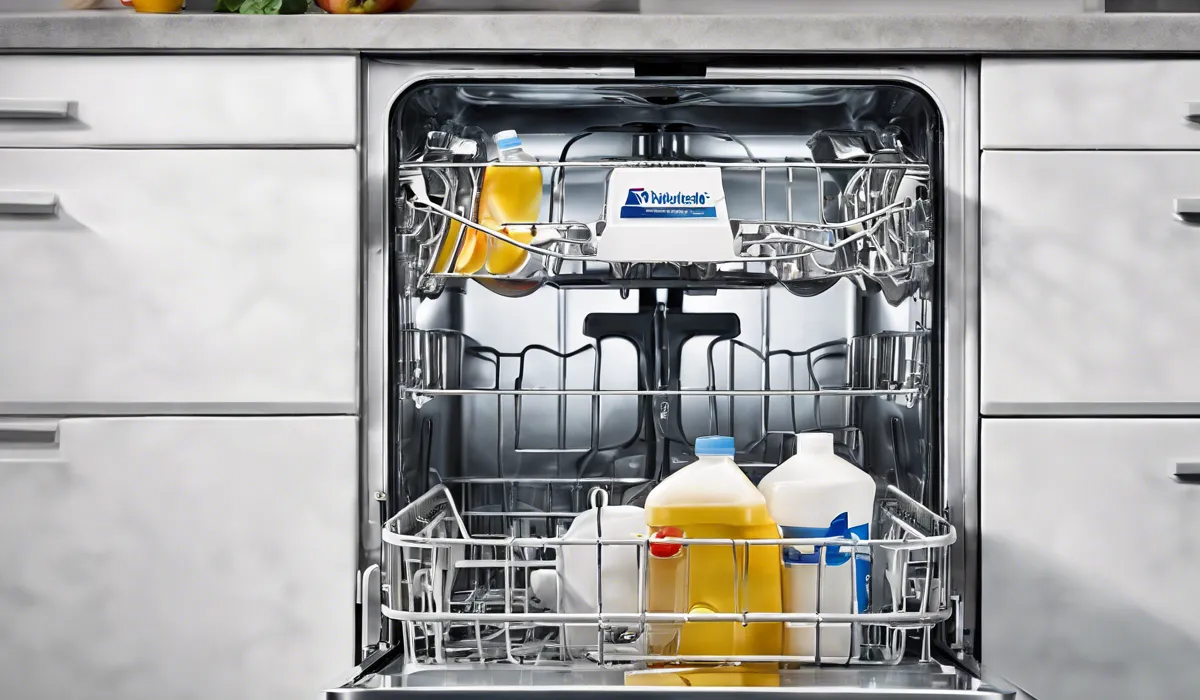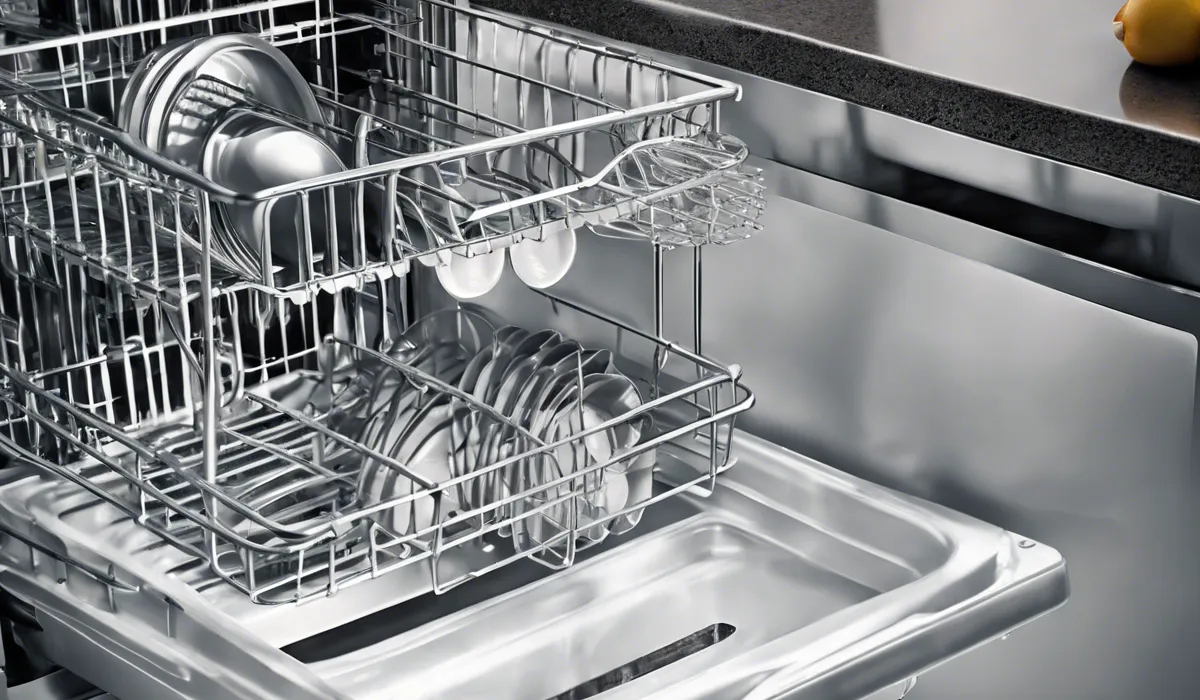Is Dishwasher Rinse Aid Safe? Unveiling the Truth!
Dishwasher rinse aids are generally safe when used as directed. They are designed to enhance drying and prevent water spots. However, they may contain chemicals that can cause irritation if ingested or come into direct contact with skin. Always handle with care and store away from children.
Understanding Dishwasher Rinse Aid and Its Components

Role of Rinse Aid in Dishwashing
Rinse aids play a crucial role in the dishwashing process by breaking the bond between water molecules and dishes, which helps water to sheet off smoothly, preventing water spots and streaks.
Their use is particularly beneficial in areas with hard water, where mineral deposits can leave residue on clean dishes.
Chemical Composition of Rinse Aids
The effectiveness of rinse aids comes from their carefully formulated chemical components.
These typically include surfactants that lower the surface tension of water, pH regulators to ensure the solution is neither too acidic nor too alkaline, preservatives to extend shelf life, and sometimes dyes and fragrances for aesthetic purposes.
Surfactants: The Active Agents
Surfactants are the active agents in rinse aids, making them essential for the rinse aid’s performance. They function by reducing the surface tension of water, which promotes better sheeting action and rapid drying.
pH Regulators: Balancing the Formula
pH regulators are added to rinse aids to maintain stability and effectiveness throughout the wash cycle. They ensure that the rinse aid remains gentle on dishes while optimizing cleaning performance.
Preservatives, Dyes, and Fragrances
Preservatives are necessary to prevent microbial growth in rinse aid formulas, while dyes and fragrances are often added for consumer appeal, though they do not contribute to the product’s dishwashing effectiveness.
Eco-Friendly Versus Conventional Rinse Aids
Eco-friendly rinse aids are designed to be less harmful to the environment, often using plant-based ingredients and avoiding synthetic dyes and fragrances.
Conventional rinse aids may contain more potent chemicals, which can be more effective but also pose greater risks to health and the environment.
Health and Environmental Safety Concerns

Potential Health Effects of Rinse Aids
Certain chemicals found in rinse aids can lead to skin and eye irritation, particularly if there is direct contact. In some cases, they may also trigger allergies and respiratory issues, especially in individuals with chemical sensitivities.
Environmental Impact of Rinse Aid Ingredients
The biodegradability of rinse aid ingredients is a concern for environmental safety. Some chemicals may persist in the environment and have detrimental effects on aquatic life and ecosystems.
Regulatory Standards for Rinse Aids
Agencies such as the Environmental Protection Agency (EPA) and the Food and Drug Administration (FDA) set regulatory standards and conduct safety assessments to ensure rinse aids are safe for consumers and the environment.
These standards help guide manufacturers in creating products that meet safety criteria.
Best Practices for Safe Use of Dishwasher Rinse Aid

Selecting Safer Rinse Aid Products
Selecting safer rinse aid products involves looking for certifications and endorsements from reputable agencies, such as the EPA Safer Choice program.
These certifications indicate that the products have been evaluated and meet higher safety and environmental standards.
Understanding Product Labels
Reading and understanding product labels is crucial for safe usage. Labels provide information on ingredients, safety precautions, and proper usage instructions, which can help consumers make informed decisions.
Minimizing Exposure and Risks
Minimizing exposure to rinse aid chemicals involves using the proper dosage as recommended by the manufacturer, regularly maintaining the dispenser to avoid leaks or spills, and following handling and storage precautions to prevent accidents.
Alternatives to Chemical Rinse Aids
For those seeking to avoid chemicals, there are alternatives such as DIY natural rinse aid solutions, which can be made from ingredients like vinegar.
Additionally, adjusting dishwasher settings to enhance drying can reduce the need for chemical rinse aids.
FAQs About Dishwasher Rinse Aid Safety
Is dishwasher rinse aid safe to use in my home?
Dishwasher rinse aid is generally safe for home use when used according to the manufacturer’s directions.
Can dishwasher rinse aid cause skin irritation?
Yes, dishwasher rinse aid may contain chemicals that could cause irritation if it comes into direct contact with the skin.
What should I do if dishwasher rinse aid is ingested?
If dishwasher rinse aid is ingested, it is important to seek medical attention immediately.
How should I store dishwasher rinse aid to ensure safety?
Store dishwasher rinse aid in a secure place, out of reach of children and pets, to prevent accidental ingestion or contact.
Are there any safer alternatives to traditional dishwasher rinse aids?
There are eco-friendly and less chemical-intensive dishwasher rinse aids available that may be considered safer alternatives.
Final Thoughts
Dishwasher rinse aids are safe for their intended use, aiding in drying and reducing water spots on dishes.
They contain chemicals that can irritate if mishandled, such as through ingestion or skin contact. It is essential to use them as directed, handle with care, and ensure they are stored safely out of the reach of children.





